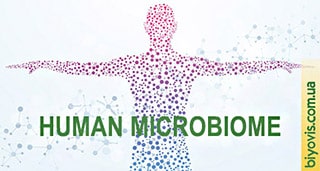Microbiome - most important protective Human's organ

Microbiome - the totality of all microorganisms living in the body and on the human body. The human microbiota is a collection of microbiocenoses, colonizes all surfaces of the human body that are in contact with the environment, including the skin, respiratory system, gastrointestinal tract and genitourinary system.
Microbiomas should be considered as a separate human organ, although it is a bit specific. It weighs as much as other organs weigh, a little less than a kilogram or so. And although it is not clearly distinguished, as, for example, the heart or liver, the organ does not need to have a shape to be eligible for existence. The immune system, for example, consists of many cells scattered throughout the body, but this is an essential feature of the organ, which is an organized system of cells.
Microbiomas are also organized. Biologists distinguish about 100 large groups of bacteria, divided into types depending on their different biochemical capabilities. Human microbiomas are divided into four types: Actinobacteria, Bacteroidetes, Firmicutes and Proteobacteria. They live inside the body and produce only certain types of bacteria.
What is the role of microbiota in strengthening the immune system, health in general and increasing longevity?
 EN
EN
 UA
UA  RU
RU 